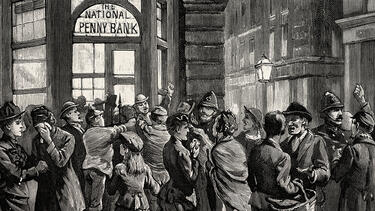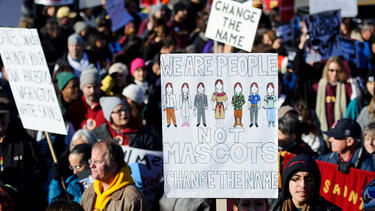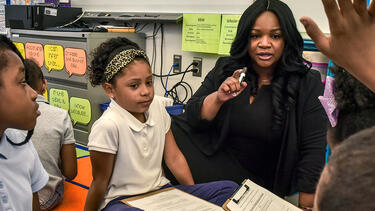Research
Under Competitive Pressure, Nursing Homes Appear to Game Rating System
Research co-authored by Yale SOM’s Amandine Ody-Brasier suggests that ratings based on self-reporting may be unreliable, and offers a solution: hide the thresholds for jumping to higher ratings.

We’re Not Sure What Authenticity Is, But We Know We Like It
Foodies, employees, and art lovers all prize authenticity—but each means something a little different when they say that something or someone is authentic.

Researchers Propose New Method to Hedge against the Risk of Climate Disaster
Markets could be a huge part of mitigating climate risk. A proposal from Yale finance faculty seeks to make that a reality.

A Few Seconds of Speech Sparks Class Bias in Hiring
New research by Yale SOM’s Michael Kraus shows that people can accurately assess a stranger’s socioeconomic position based on brief speech patterns and that these snap perceptions influence hiring managers in ways that favor job applicants from higher social classes.

To Prevent Financial Crises, Regulate Short-Term Debt
Yale SOM’s Gary Gorton argues that financial crises happen because short-term lending, while essential to the economy, is also vulnerable to panic when parties lose confidence in each other. In a new paper, Gorton proposes a method of regulating short-term debt and preventing future crises.

When the School Mascot Is a Native American Stereotype
Researchers led by Yale SOM’s Michael Kraus and psychology doctoral student Xanni Brown found that a university community’s acceptance of a racist symbol affects students’ sense of belonging and may decrease willingness to donate in the future.

A Decision Analysis Approach Points to Better Diagnosis of Prostate Cancer
A new study led by Yale SOM’s Arthur J. Swersey, using decision analysis techniques, finds that increasing the number of biopsy needles and using probability modeling to analyze the results can help prevent unnecessary treatment while identifying dangerous cancers.

Got a Great Idea? Tell Your Rivals
A new study from Yale’s Jiwoong Shin finds that companies with truly innovative products may actually benefit from giving away some of their secrets.

Equalizing School Spending Boosts Lifelong Income
School finance reforms that equalize spending across rich and poor neighborhoods improve the long-term economic outcomes of disadvantaged children.

When Prompting People to Make a Choice, the Consequence of Not Choosing Matters
In a new study, Yale SOM’s James Choi and his colleagues found that the implicit default—what happens if people don't make a choice—affects whether they make a choice at all.
